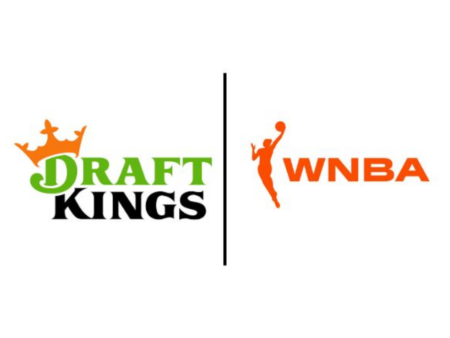In a disappointing turn for sports betting enthusiasts, Minnesota lawmakers failed to address a measure that would have legalized sports betting during their latest legislative session. Instead, the session was overshadowed by contentious debates and the arrest of a prominent senator, diverting attention from the much-anticipated sports betting discussion.
Legislative Session Overshadowed by Arrest and Heated Debates
The session was marked by the unexpected arrest of Senator Nicole Mitchell in Detroit Lakes on charges of first-degree burglary. This incident, along with heated arguments over other legislative matters, significantly detracted from the focus on the sports betting bill.
Minority Leader Mark Johnson expressed his frustration over the legislature’s failure to consider the sports betting measure. “It’s disappointing that we didn’t even discuss the bill,” Johnson remarked, reflecting the sentiments of many proponents who had hoped Minnesota would join the growing list of states embracing legalized sports betting.
A Broader Context of Nationwide Struggles
Minnesota’s failure is part of a broader national trend, where several states have struggled to pass sports betting legislation in 2024. Industry analysts had high hopes for Minnesota, along with Missouri, Alabama, and Georgia, but none succeeded in legalizing sports betting this year.
In Missouri, legislative stalemate forced professional sports clubs to start collecting signatures to put the issue on the November ballot. Alabama’s efforts were thwarted by an inability to reach a consensus, and Georgia saw its bill pass the Senate but stall in the House.
Specific Challenges in Minnesota
In Minnesota, the conflict over who would control sports betting was a significant hurdle. The proposed measure would have granted the state’s 11 tribal nations exclusive rights to offer sports betting, a provision that faced opposition from other commercial betting interests. The tribes already hold exclusive rights to casino gaming, further complicating negotiations.
Adding to the legislative distractions, debates around historical horse racing (HHR) machines further consumed lawmakers’ time and energy, preventing them from focusing on sports betting legalization.
Future Prospects for Sports Betting
As Minnesota joins the ranks of states that failed to pass sports betting legislation in 2024, the outlook remains uncertain. Only Missouri and Washington D.C. retain any realistic chance of legalizing sports betting this year.
In Minnesota, the path to legal sports betting faces significant obstacles, including reconciling the interests of tribal nations and commercial betting stakeholders and overcoming the legislative distractions that have plagued recent sessions. Without addressing these core issues, the state’s sports betting enthusiasts may continue to wait in vain.
Conclusion: The Failure
The failure to legalize sports betting in Minnesota reflects broader national challenges and underscores the complexity of balancing diverse interests in the legislative process. As states like Missouri and Washington D.C. continue their efforts, the hope for legalized sports betting remains alive but tenuous.
For now, Minnesota’s sports betting advocates will have to regroup and hope that future legislative sessions can bring more focus and consensus on this highly anticipated issue.
FAQs on Minnesota’s Failure to Legalize Sports Betting
1. What happened to the sports betting bill in Minnesota?
The sports betting bill in Minnesota was not addressed during the latest legislative session. Lawmakers failed to consider or discuss the measure, leading to disappointment among proponents of legalized sports betting.
2. Why was the sports betting bill not discussed in the legislative session?
The legislative session was overshadowed by contentious debates and the arrest of Senator Nicole Mitchell, which diverted attention from the sports betting bill. Additionally, arguments over historical horse racing (HHR) machines further consumed lawmakers’ time.
3. Who opposed the sports betting measure in Minnesota?
Supporters of the commercial betting industry’s interests opposed the measure, which would have allowed the state’s 11 tribal nations to exclusively offer sports betting. These tribes already hold exclusive rights to casino gaming, adding to the complexity of the issue.
4. What were the major distractions that prevented the legalization of sports betting?
The major distractions included the arrest of Senator Nicole Mitchell and debates over HHR machines. These issues dominated the legislative session, preventing lawmakers from focusing on the sports betting bill.
5. How did Minority Leader Mark Johnson react to the situation?
Minority Leader Mark Johnson expressed frustration and disappointment over the legislature’s failure to discuss the sports betting bill. He criticized the lawmakers for not even considering the measure.
6. How does Minnesota’s failure compare to other states regarding sports betting legalization?
Minnesota’s failure to legalize sports betting mirrors similar struggles in other states like Missouri, Alabama, and Georgia, all of which also failed to pass sports betting legislation in 2024.
7. What are the future prospects for legalizing sports betting in Minnesota?
The future prospects for legalizing sports betting in Minnesota remain uncertain. Significant obstacles include reconciling the interests of tribal nations and commercial betting stakeholders and overcoming legislative distractions. Future sessions will need more focus and consensus to succeed.
8. Are there any states still attempting to legalize sports betting in 2024?
As of now, only Missouri and Washington D.C. have realistic chances of legalizing sports betting in 2024.
9. What other gambling-related measure was introduced in Minnesota?
Instead of expanding gambling through sports betting, Minnesota introduced a ban on historical horse racing (HHR) matches, which limits the local gambling industry.
10. Why is the issue of tribal nations’ control over sports betting significant?
The issue is significant because granting exclusive sports betting rights to the tribal nations, who already have exclusive casino gaming rights, creates tension with other commercial betting interests. This exclusivity is a major point of contention and complicates the legalization process.


















